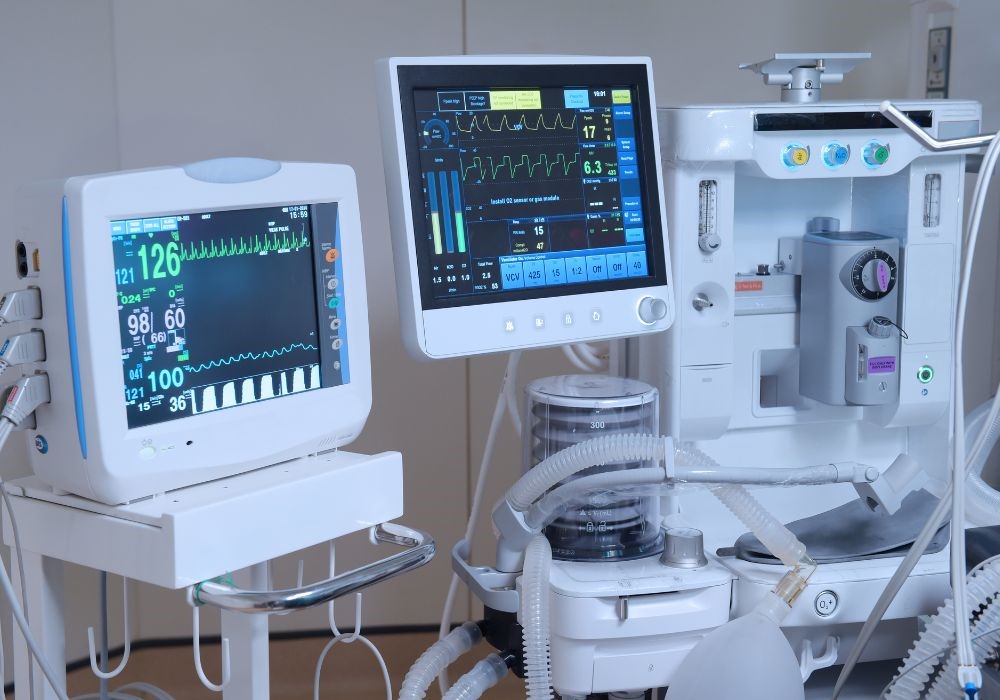Starting a business in the healthcare industry can be a rewarding and profitable venture,
but it’s not always necessary to have a degree to be successful. Here are a few
examples of healthcare businesses that can be started without a degree:
1- Medical Billing and Coding

Medical billing and coding is a necessary aspect of running a healthcare practice, but it can be outsourced to a third-party business. Starting a medical billing and coding business requires knowledge of medical billing software and coding systems, but this can be learned through training programs and certifications.
2- Home Care Services

As the population ages, there is a growing demand for home care services. Starting a home care business can be done without a degree, but it does require knowledge of the healthcare industry, as well as a passion for helping others.
3- Medical Equipment Rental

Many healthcare practices and hospitals rely on medical equipment, such as oxygen tanks, hospital beds, and wheelchairs, that can be rented out for patients to use at home. Starting a medical equipment rental business requires knowledge of medical equipment and the ability to maintain and service it, but a degree is not necessary.
4- Medical Transportation

A medical transportation business can include things such as non-emergency medical transportation, wheelchair-accessible transportation, and transportation of medical equipment which is also called a nemt business. This business can be started without a degree, but it does require knowledge of transportation logistics and the ability to comply with regulations.
5- Telemedicine

With the growth of technology, telemedicine has become increasingly popular. Starting a telemedicine business can be done without a degree, but it does require knowledge of telemedicine software and the ability to comply with regulations.
6- Medical Supply Store

A medical supply store can sell products such as medical equipment, medical supplies, and over-the-counter medications. Starting a medical supply store requires knowledge of the healthcare industry and the products that are sold, but a degree is not necessary.
It is important to note that while these businesses do not require a degree, it is still
important to have knowledge and experience in the healthcare industry. Additionally,
many of these businesses will require licenses and certifications in order to operate
legally.
Conclusion
In conclusion, starting a business in the healthcare industry does not necessarily require
a degree. There are many opportunities for entrepreneurs to start a business in the
healthcare field, such as medical billing and coding, home care services, medical
equipment rental, medical transportation, telemedicine, and medical supply stores. With
the right knowledge and experience, these businesses can be successful and rewarding
ventures.
Read Also
- Mastery Forge Webinar Platform – Choose Your WebinarWe live in a time when knowledge is literally at your fingertips. You no longer have to go on long courses, wait for free places or adapt to a rigid schedule of classes. All you need is the Internet, a little willingness and you have access to training courses conducted by experts from all over… Read more: Mastery Forge Webinar Platform – Choose Your Webinar
- Beyond the Blueprint: Why Integrated Electronics Manufacturing Beats Fragmented SourcingBringing an electronic product to market is a complex orchestration of design, engineering, manufacturing, and logistics. The days of siloed operations, where a company would design a product and then simply hand off the blueprints to a contract manufacturer, are largely disappearing. In their place, a more integrated and efficient model has emerged: end-to-end electronics… Read more: Beyond the Blueprint: Why Integrated Electronics Manufacturing Beats Fragmented Sourcing
- Hardened shelter solutions reshape how military operations stay safe and functional in the fieldDifficult terrain, unpredictable threats and long deployments have driven modern militaries to reconsider how they create safe, reliable spaces in the field. Rigid wall shelters and container-based structures are becoming the quiet backbone of operations, offering durability, mobility and real comfort for the troops and support teams. When most people think of military bases, they… Read more: Hardened shelter solutions reshape how military operations stay safe and functional in the field
- The Function of a CRO for Clinical Trials: Structure, Responsibilities, and Operational ImpactClinical trials rely on organized systems that ensure scientific validity, participant protection, and regulatory compliance. As protocols become more intricate and studies expand across multiple regions, many sponsors collaborate with specialized partners to manage key operational and methodological tasks. A CRO for clinical trials provides this structured support, coordinating the activities required to move a study from… Read more: The Function of a CRO for Clinical Trials: Structure, Responsibilities, and Operational Impact
- Innovative Strategies for Marketing Neuropathy TreatmentsLiving with neuropathy can be difficult, both physically and mentally. As a healthcare professional, you see how much it affects your patients and how important it is to find treatments that truly help. But with new medical updates and a fast-changing digital world, marketing neuropathy treatments can feel overwhelming. This is where fresh, practical strategies… Read more: Innovative Strategies for Marketing Neuropathy Treatments






